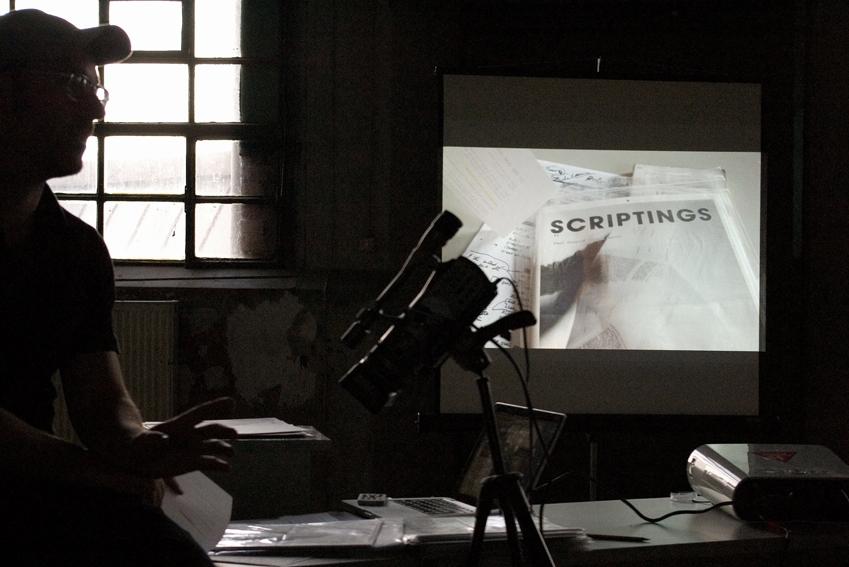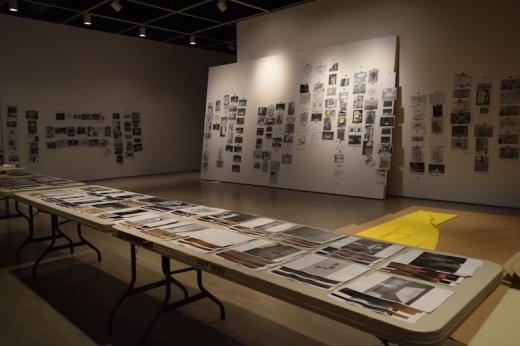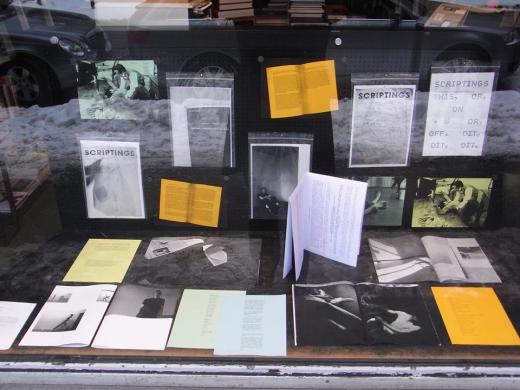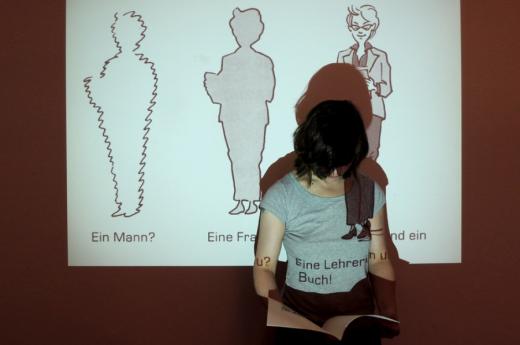Have you met... Scriptings
Have you met... Scriptings

Achim Lengerer is an artist based in Berlin and London who works with questions of language, either thematized in his performances, or spatialized within his installations. Since 2009 he has been running the mobile showroom and publishing house Scriptings in Berlin's district Wedding. Scriptings acts as a discursive platform, as well as a supplement and a parallel entity to Lengerer's solo projects. Artists, authors, graphic designers, performers, publishers, and everyone else working with the formats of "script" and "text" within their processes of production are invited to participate in this multifaceted project. We met Achim at Scriptings to find out more about its workings.
How did Scriptings begin?
For a long time Scriptings was labeled as an instant publishing house and a traveling show. The project itself started in 2009 in Amsterdam. After my studies in Frankfurt, I spent some time in the Netherlands. In Amsterdam I had set up the project. Then I came to Berlin, end of 2009, continued with the project, finally got this space as a venue in 2012 and started to run the program in 2013.
I find it interesting that you call it the "Traveling showroom". Is it still a traveling project?
It is. It is twofold. It needs to take place somewhere concretely, so this here is a specific part of Wedding which has importance. But it can also take place at another specific place. Last summer I was invited for a project in Montreal. It was a collaboration of three different venues there. Within the framework of the workshop I was asked to create a performative catalog for this big three-part exhibition, and Scriptings definitely took place there.

Scriptings#46: A catalogue, in any case unreasoned and incomplete, 2016
What is your main focus at Scriptings?
It shifted over the years. I claim to be a political project in the sense that the setup is a workshop structure, it is about working with other people. I think one could argue that the situation itself should be looked at as a political situation and the question is how then to collaborate.
When it comes to artists' practices, very often it is about political moments in history and thinking with artistic means through these historical moments. Solo projects very often research specific groups that consider themselves political, social experiments; communist groups in the 1970s in West Germany; or people who work with children, youth, education, funds. There is always a political question more or less involved.
How is the program conceived?
At the core of the project are publications that are in relation to live performance, radio play, exhibiton, or film. There is always a relation between the printed matter and the performance. Roughly one third of the program is solo projects of mine. One third is invitation to other artists to work with me, the space, or the publications. The last third is workshops at universities, academies, or theaters, which is a collective production.

Scriptings printed editions
How do you manage these collaborations?
Sometimes it gets quite intense. Interestingly ehough, while I work as a solo artist, I usually never show in the space itself. In a year there are a few printed matters or events taking place. When it is a solo artist that I invite, I have usually seen the work or I know the person, and invite the person based on how I sense their work at that point. When it is about other artists, it is to think whether it makes sense for them to work with a smaller but precise format. It starts from the practice of the artist.
When it is about workshops, it differs. For example, couple of years ago there was a collaboration with graphic design department of Gerrit Rietveld Academy. It was an invitation to run a four-week workshop. When it is not related to universities or academies, when it takes place in theathers or exhibiton venues, it might be an open call, which is distributed by venue itself, plus me contacting people I know in the city or people working in the theatre or exhibiton space, writing to people who I think might be interested.

Christine Lemke, "Seit ich die Sprache spreche, die ich lerne", 2014
What are you currently working on?
The current project at Scriptings is "Man schenkt keinen Hund“. It runs through March this year, and then it will continue to run as a publication, this time as a book. It is a collaboration with Christine Lemke and it starts from her practice. She is an artist and she teaches German in an integration course. What she found highly problematic in these courses is the way in which people are represented in the images in the books – their cultural background is represented stereotyped – but also in the way these language courses themselves are set up. Throughout the last ten to twenty years, one can see that people with a background in cultural or similar studies are also working on these books, but there is still a multiplicity of problems. So, that is the starting point – to discuss these books, what they mean for our society and what they mean as teaching tools. That is, of course, related to broader issues, and to what may be the main question – how do we deal with this seemingly accepted notion that integration means language integration.
* * * * *
Scriptings
Kamerunerstr. 47, 13351 Berlin
More info